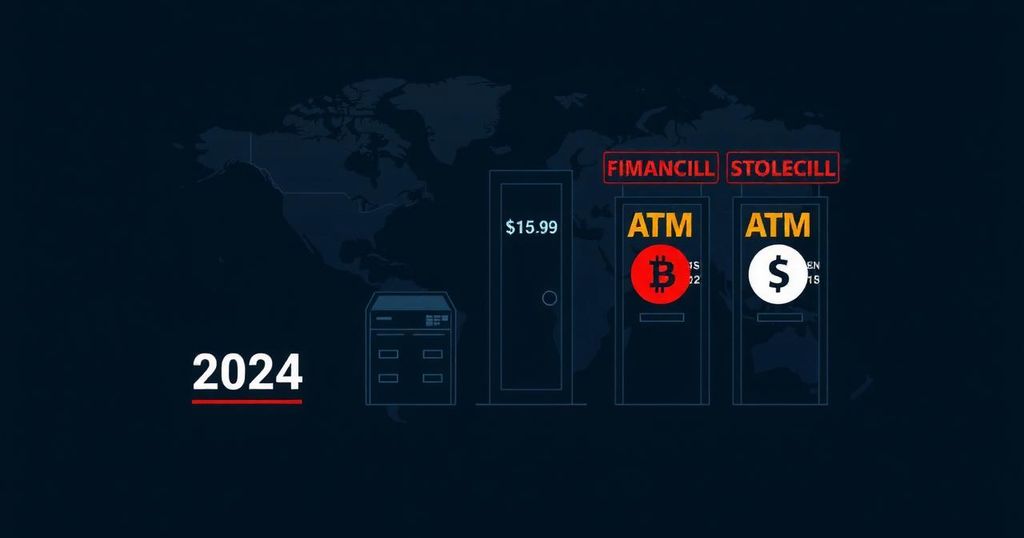Surge in Bitcoin ATM Scams Result in $65 Million Losses in 2024
Summary
The Federal Trade Commission (FTC) reports Bitcoin ATM scams have cost victims over $65 million in the first half of 2024. Scammers use these machines to exploit individuals through government impersonation, tech support scams, and more. Many victims, particularly the elderly, are misled into depositing cash into BTMs under the false pretense of protecting their funds. The FTC advises against engaging with unsolicited communications and encourages vigilance and verification to prevent falling victim to such scams.
As the use of Bitcoin ATMs continues to expand across various public venues, including convenience stores and gas stations, there has been a troubling surge in cryptocurrency-related scams. These automated machines, referred to as BTMs, are intended for the purchase and transfer of digital currencies; however, fraudsters have exploited their existence, resulting in substantial financial losses for unsuspecting victims. According to the Federal Trade Commission (FTC), reported losses associated with these scams have exceeded $65 million in the first half of 2024 alone. The predominant types of scams reported include government impersonation, business impersonation, and tech support fraud. Victims are frequently approached through unsolicited phone calls, deceptive online advertisements, or dubious email communications. Scammers often induce panic by alerting individuals to supposed suspicious activities or unauthorized charges in their bank accounts. They may utilize fraudulent security alerts that mimic well-known companies to gain trust, subsequently encouraging victims to deposit cash into BTMs as a means of “protecting” their funds or resolving non-existent issues. Peggy Herbert, an 83-year-old victim, recounted her distressing experience after depositing $34,000 into a Bitcoin ATM. “I got the alert on my iPad,” Ms. Herbert shared, “‘Alert, alert… call this number… your account has been compromised.'” After following the instructions of the caller, who posed as a representative from Apple and later connected her to someone impersonating her bank’s fraud department, her money was ultimately recovered by law enforcement. Yet, such fortunate outcomes are infrequent, underscoring the importance of vigilance. To mitigate the risk of falling prey to such scams, the FTC recommends several protective measures. Individuals should avoid clicking on links or replying to unsolicited communications. Instead, they should verify any credentials by directly contacting the relevant company or agency through independently sourced contact information. It is crucial to remain calm; scammers often attempt to instill a sense of urgency. Furthermore, individuals are advised against withdrawing cash in response to unexpected solicitations, particularly when urged to utilize Bitcoin ATMs, purchase gift cards, or transfer funds under the pretext of securing their money. Notably, victims aged 60 and older represent a significant portion of reported scams, making it essential for families to engage in discussions about these predatory behaviors. As Ms. Herbert advises, “Hang up. Call someone in your family or call someone, a friend. Be careful of these sophisticated schemes.”]
The rise of Bitcoin ATM scams highlights a growing issue within the cryptocurrency landscape, as criminals leverage the anonymity and unregulated nature of digital currency transactions. The trend correlates with the increasing proliferation of Bitcoin ATMs in public areas, making them accessible targets for scammers. In 2024 alone, the FTC reported unprecedented financial losses associated with these scams, emphasizing the need for public awareness and preventive measures against such fraudulent activities. The demographic most frequently targeted includes the elderly, who may be more susceptible to manipulation through fear tactics and technical confusion regarding cryptocurrency and digital transactions.
In summary, the alarming increase in Bitcoin ATM scams has resulted in significant financial losses, particularly affecting vulnerable populations such as the elderly. It is crucial for individuals to remain vigilant and educate themselves and others about the tactics employed by scammers. By adhering to the FTC’s guidelines and fostering open conversations within families, individuals can protect themselves from becoming victims of these sophisticated fraud schemes.
Original Source: www.nbcboston.com








Post Comment